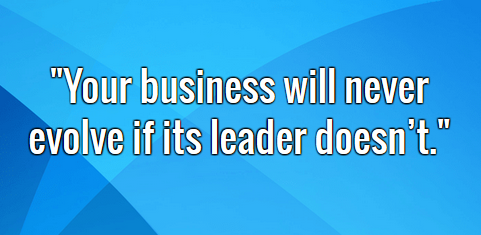At the beginning of an entrepreneurial initiative, everything is an adventure. It doesn’t matter if you’re working nonstop and surviving off leftover pizza. You simply want to build and create.
But there comes a time when you’ve moved from ideation to management — when your big adventure has become a job — and that spirit of innovation can get buried under the weight of your day-to-day tasks. If you allow your energy to diminish, your organization stops growing. Before long, someone will outdo you.
This entrepreneurial attitude is not just about avoiding failure, though. It’s about building a business that thinks creatively, scales efficiently, and generates trust in consumers. These principles drive startups, and they can drive big businesses, too. It’s just a matter of maintaining an entrepreneurial mindset.
Leveraging the entrepreneurial mindset
Keeping up that mindset is about empowering your front line to work toward finding better ways to move your business forward — whatever “better” means for your brand in any given moment.
And this entrepreneurial spirit starts with, well, the entrepreneur. Observe these two key guidelines for maintaining that mindset, and your company will follow.
1. Admit that you have room for growth, too. Your business will never evolve if its leader doesn’t. You can’t possibly know everything it takes to reach your business’s potential, so don’t act like you can. Instead, adapt.
Not having all the answers is something every entrepreneur will face. You can keep whacking at your problem with what you already know, or you can exercise that entrepreneurial spirit, thinking critically about what’s missing in your dilemma and how you can achieve it.
Starting in 2008, our firm grew more than 500 percent over the next five years. We needed to implement serious changes in light of this rapid growth, and we needed to do so immediately. During this whirlwind period, employees kept asking me what we should do. And I didn’t really know because every stage of growth brought new challenges we’d never faced before.
So I attended an executive education class at Dartmouth on growing a business to scale and developed a four-point plan focused on operations, people, growth and culture. This gave us a game plan moving forward.
Our company grew, but I had to adapt first.
2. Establish robust self-awareness. In Justin Menkes’ book “Executive Intelligence,” he outlines three things that make a strong leader. The first is good decision-making, the second is relationship-building, and the third (and most important) is self-awareness.
Don’t let your title or accomplishments define you — these attributes are shallow and short-lived. Resting on the “I’m the boss” principle inhibits your growth and, therefore, your company’s growth. Rather, knowing your strengths and weaknesses gives you the tools to lead authentically and dynamically, making way for an entrepreneurial leadership style that sticks.
Many leaders struggle with self-awareness, though. If you’re one of them, start with a personal assessment (think Myers-Briggs Type Indicator, DiSC, and others). You’ll have a better understanding of your priorities, decision-making style, and communication skills — and a better idea of what it will take to keep your business in constant entrepreneurship.
Your organization’s progress is contingent on how well you, the entrepreneur, maintain and employ your entrepreneurial mindset. As long as you’re willing to realize you have room for growth (and grow accordingly!) and lead with strong self-awareness, you’ll overcome one of the greatest challenges of being an entrepreneur: staying an entrepreneur.
Elise Mitchell is the CEO of Mitchell, an award-winning strategic communications firm. She’s an accomplished strategic communications professional and business leader. Her upcoming book, “Leading Through the Turn,” will be available for download in January 2017. Pre-order the book here.
If you enjoy this article, join SmartBrief’s e-mail list for our daily newsletter for entrepreneurs.
